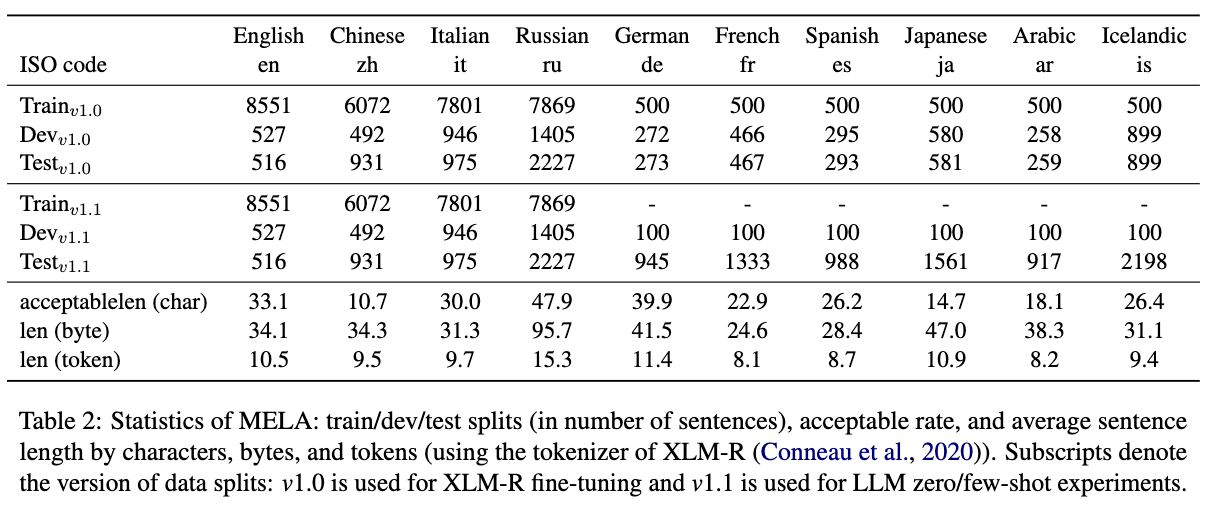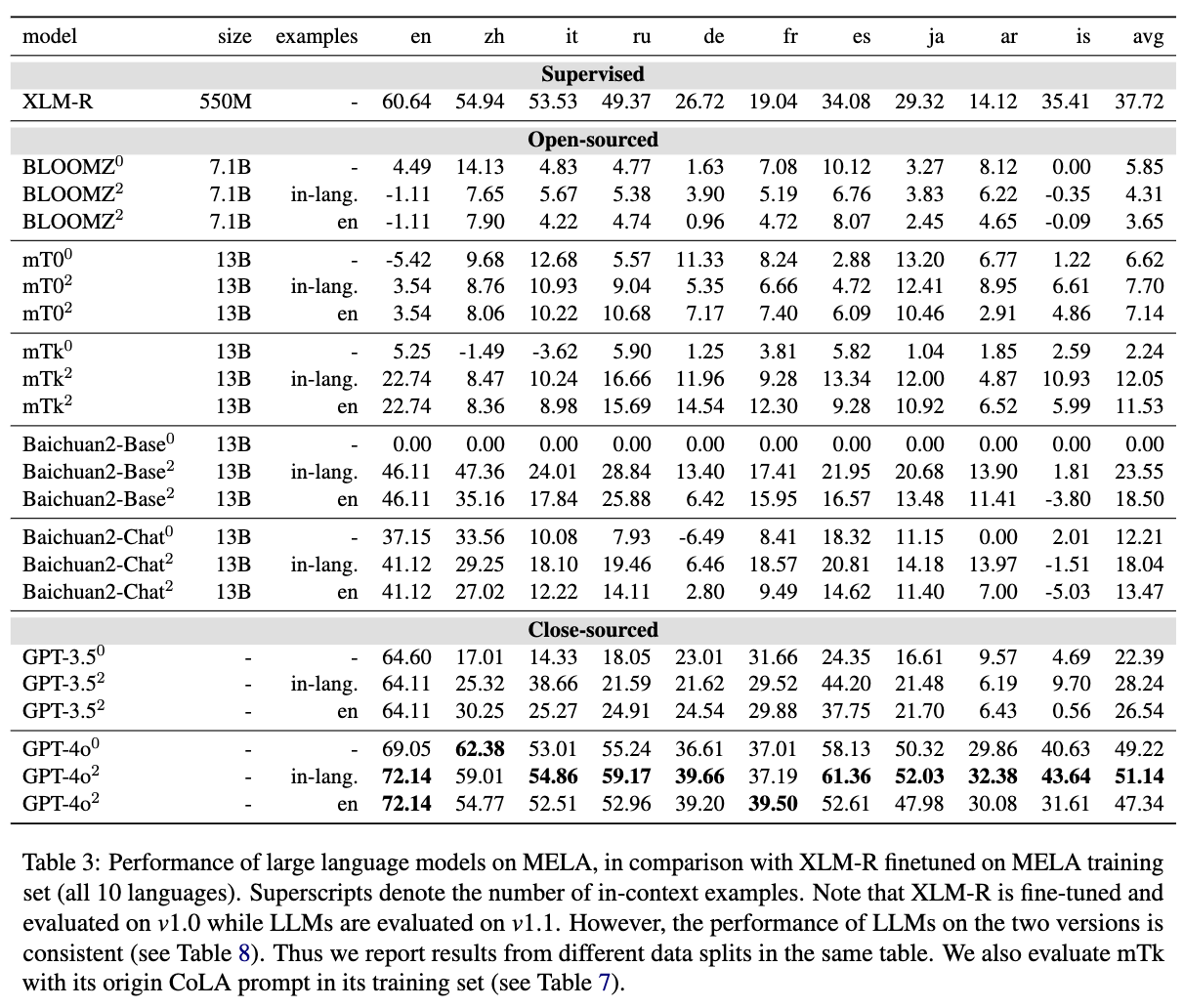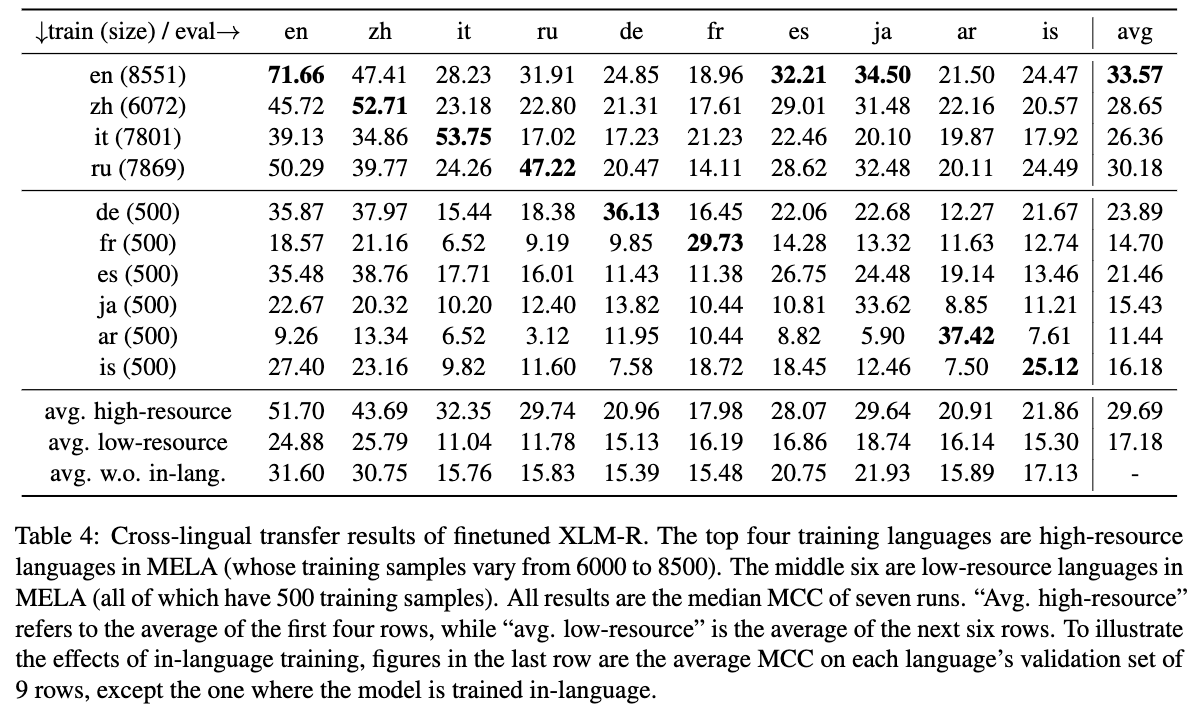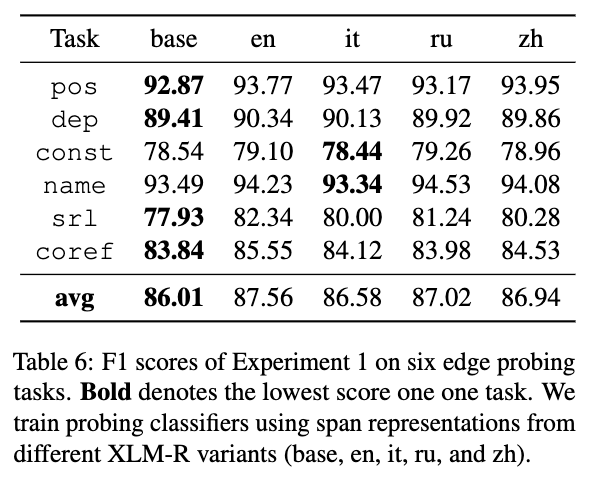This repository contains data for the MELA (Multilingual Evaluation of Linguistic Acceptability) benchmark.
Note that to prevent data contamination, we put the data in a zip file with the password: 200240.
MELA is now available in lm evaluation harness.
Now you may evaluate your model on MELA like any other task in the harness:
git clone https://github.com/EleutherAI/lm-evaluation-harness
cd lm-evaluation-harness
pip install -e .
lm_eval --model hf --model_args pretrained=[model_name_or_path] --tasks mela --device cuda:0 --num_fewshot 2 --output_path results --log_samples
Some models' results:
| model | shot | reported in the paper | lm eval harness |
|---|---|---|---|
| BLOOMZ 7B | 0 | 5.85 | 5.99±0.85 |
| BLOOMZ 7B | 2 | 4.31 | 4.11±0.87 |
| mT0 13B | 0 | 6.62 | 7.72±0.88 |
| mT0 13B | 2 | 7.70 | 5.82±0.75 |
| mTk 13B | 0 | 2.24 | 3.16±1.01 |
| mTk 13B | 2 | 12.05 | 12.26±0.98 |
MELA contains 46k acceptable and unacceptable sentences from 10 languages: English, Chinese, Italian, Russian, German, French, Spanish, Japanese, Arabic, and Icelandic. Sentences in English, Italian, Russian, and Chinese are consolidated from previous works, which are refered to as high-resource languages. Samples in other languages (i.e., low-resource languages) are sourced from renounced linguistics publications such as syntax textbooks and journal articles. In our paper, we showcase three potential usages of MELA:
- Benchmarking LLMs
- Cross-lingual transfer
- Syntax acquisition
Here are example sentences from MELA:
Note that we have two versions of data splits: 1) data/v1.0, and 2) data/v1.1. Differences lie in low-resource language (see prompt in prompts.txt).
-
data/v1.0: We used this version to fine-tune XLM-R, we had to keep a training set of 500 samples for each low-resource language. -
data/v1.1: To better evaluate LLMs, we re-split the data and only keep 100 samples as development set for 6 low-resource languages. Thus, more data can be utilized to evaluate LLMs.
We list the results of several multilingual LLMs (evaluated on v1.1) along with fine-tuned XLM-R (evaluated on v1.0).
Following previous works in linguistic acceptability, we use MCC as the evaluation metric.
To observe the transfer of acceptability judgements across languages, we train the model on one language, and evaluate it on all 10 development sets.
We train probing classifiers using span representations from XLM-Rs on English probing tasks, including 1) part-of-speech tagging, 2) dependency labeling, 3) constituency labeling, 4) named entity labeling, 5) semantic role labeling, and 6) co-reference.
Ziyin Zhang, Yikang Liu, Weifang Huang, Junyu Mao, Rui Wang, Hai Hu
If you use our dataset, please cite us plus all other corpora of linguistic acceptability used in MELA (see citations.bib file).
@misc{Zhang2023MELA,
title={MELA: Multilingual Evaluation of Linguistic Acceptability},
author={Ziyin Zhang and Yikang Liu and Weifang Huang and Junyu Mao and Rui Wang and Hai Hu},
year={2023},
eprint={2311.09033},
archivePrefix={arXiv},
primaryClass={cs.CL}
}




